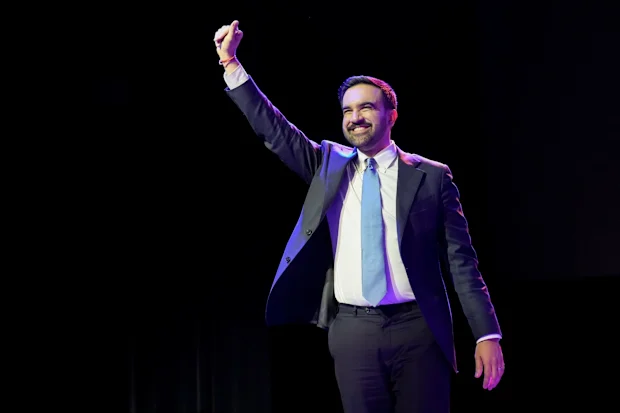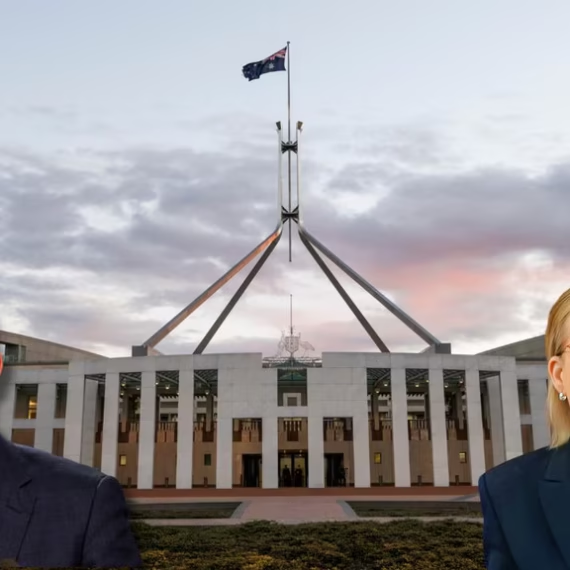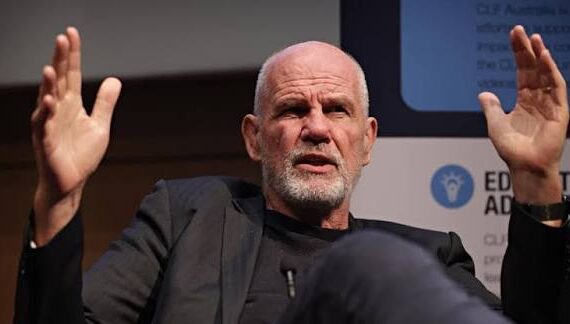
Nick Dyrenfurth
Executive Director of the John Curtin Research Centre

Image credit: Bloomberg
Politics, like history, can move glacially, until it doesn’t.
On that score, Lenin was right about one thing: “there are decades where nothing happens, and weeks where decades happen.”
Zohran Mamdani’s victory in New York may come to be regarded as such a week. The son of Ugandan-Indian immigrants, a self-styled democratic socialist and critic of establishment Democrats, he embodies a generational insurgency reshaping politics: New York’s first Muslim mayor and youngest in a century, elected on the highest turnout since 1969. That the 34-year-old scion of privilege, untested by any real job, could become the face of working-class revolt mattered not a jot, or, perhaps, explains everything about politics in 2025.
It is tempting for Australia’s major parties to treat this as a curiosity of American mid-term politics, a product of the Bronx rather than Bankstown. That would be a mistake. Mamdani’s rise tells us something urgent about our own nation’s future: the revolt of Millennials and Gen Z, the collapse of party deference, and the end of establishment politics as usual.
Across the West, the old order is cracking. In the US, outsider populists have captured both major parties, most dramatically in Donald Trump’s case. In Britain, traditional parties are threatened by extremes of right and left speaking the raw, angry language of disaffection. Whether Reform UK or the Greens, tectonic plates are shifting beneath our feet.
Voters under forty no longer feel represented by the parties of their parents. They rage over housing, job prospects, an economy they believe is rigged against them, and environmental decay. They see politics as a closed shop run by an insider class of careerists, ex-staffers and lobbyists – sometimes all three at once – whose only ideology is career advancement.
This fury has two faces: radical hope and nihilistic despair. The first fuels the likes of Mamdani, insurgents who promise to tear down the system and rebuild it from below, however implausible. The second powers Trump, Farage and the far-right parties of Europe, channelling resentment into ethno-nationalism and cultural grievance. Different ideologies, same psychology: a revolt against the insider class of mainstream left and right.
Australia is not immune. In fact, we may be next. The combined two-party primary vote has fallen from almost 90 per cent in the 1980s to 67 per cent in May. Latest polling has it at a record low 60 per cent. Minor parties and independents are no longer peripheral, but structural. The same anti-establishment energy fuelling Mamdani or France’s Jordan Bardella animates our own suburbs, from Werribee to Wetherill Park, Logan and Launceston.
On the right, Liberal leadership aspirant Andrew Hastie sees this clearly. He is recasting himself as a soldier-outsider, a man of faith, nationalist conviction and suburban authenticity railing against metropolitan elites. Australia’s Trump-with-decorum. Whether his party grants him that opportunity is another matter. It’s all well and good to present yourself as a ‘family, faith, flag’ Red Tory, but the message rings hollow when you and your colleagues, if by accident, alienate key small c conservative constituencies of ethnically diverse Australians.
Still, in politics, it is wise to assume the worst. And so yes, Anthony Albanese’s Labor government is currently ascendant, purposeful and popular, certainly in comparison to the Fawlty Towers Liberals opposite. But here’s the rub: not a single Millennial or Gen Z voter was even born when Fawlty Towers first aired. The reference itself is a relic, a reminder that much of our political class is still talking in 1970s clichés to voters who long ago swapped the family TV for a smartphone and the six o’clock news for TikTok. Voters are yearning for competence and conviction; not only for policy but for proof it works. They want leaders who look and sound like them, who speak from the gut, not dot points from focus groups.
That’s the lesson of Mamdani’s win. It’s not about ideology per se, though it may have animated some voters. Ignore the noise around the impact of the Middle East. Mamdani’s victory was built on the cost-of-living crunch and inequality: a platform of rent freezes, universal childcare and free public transport paid for by those most able to pay. He embodied authenticity, or, more precisely, the opposite of establishment inauthenticity. Younger voters respond to those who break the script, who sound real, take risks. They are bored to tears by endless parades of apparatchiks. The more both the Liberals (and Nationals) and Labor resemble machines, the more they feed the insurgency. Start selecting election candidates from real life, not LinkedIn: builders, carers, creators, doers and iconoclasts.
Because the new politics will not wait. It is impatient, distrustful and anti-authoritarian. It does not respect hierarchy or heritage. And it will devour those who mistake institutional memory for public legitimacy or think their parties have a God-given right to exist.
On God, Jews across the world this week read a Torah portion known as Vayera. It tells of the Binding of Isaac — the near-sacrifice of a son by a father commanded by the Eternal. Abraham reminds us that blind faith, even for a noble purpose, can lead to ruin. Conviction must be tempered by judgment, and following orders is not the same as doing right.
In politics, too, there is a temptation to obey: to submit to hierarchy, to not rock the boat, to keep the peace. But blind obedience is not virtue. It is the death of politics itself. The courage to question, to argue, to dissent — these are the true marks of democracy and leadership.
Mamdani’s triumph, like those of populists on the right, reminds us that obedience has its price.
Ultimately, the American people may pay a very high one. But the lesson remains: when parties become conformist machines, people look elsewhere. It’s called politics.





